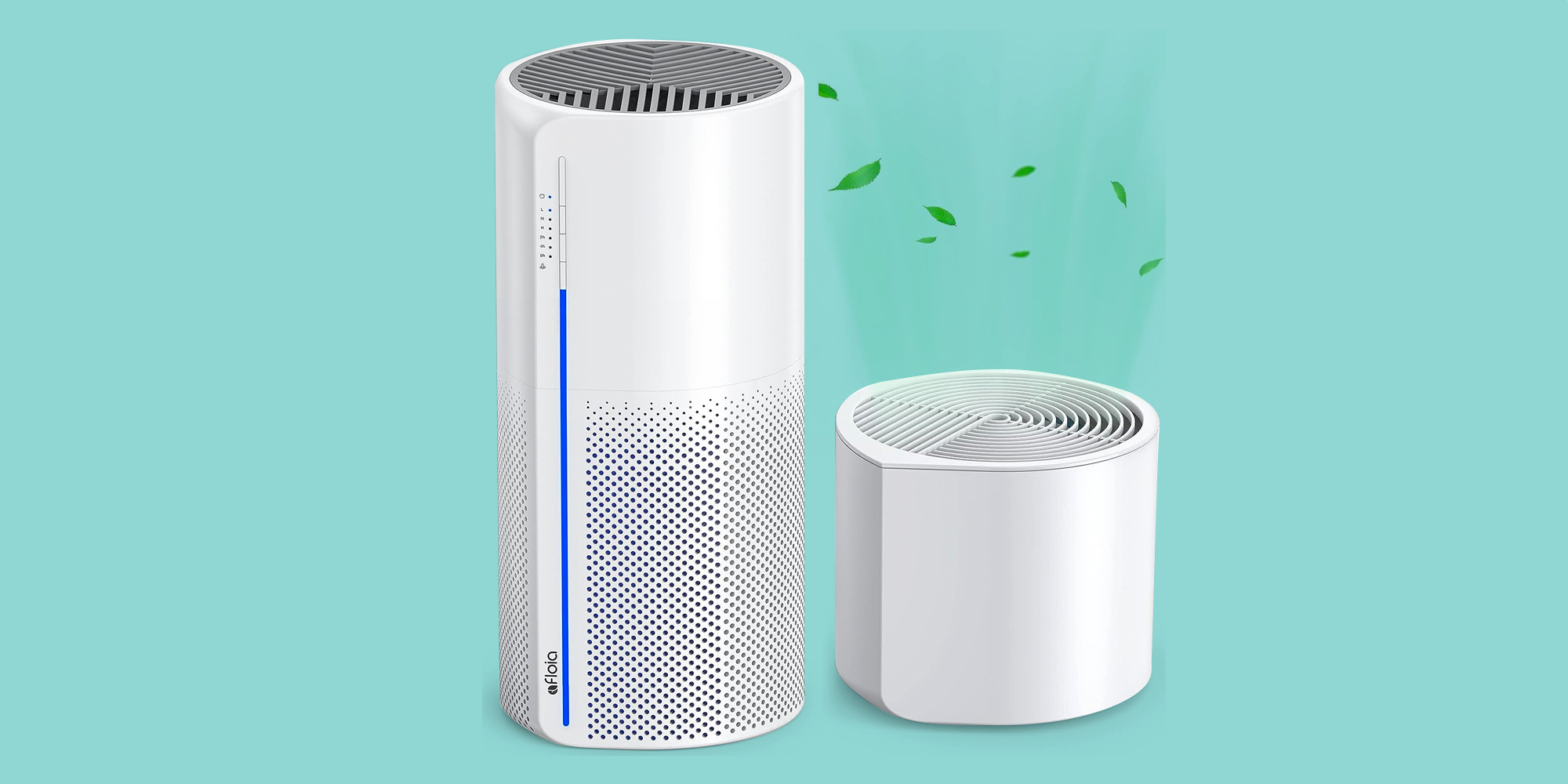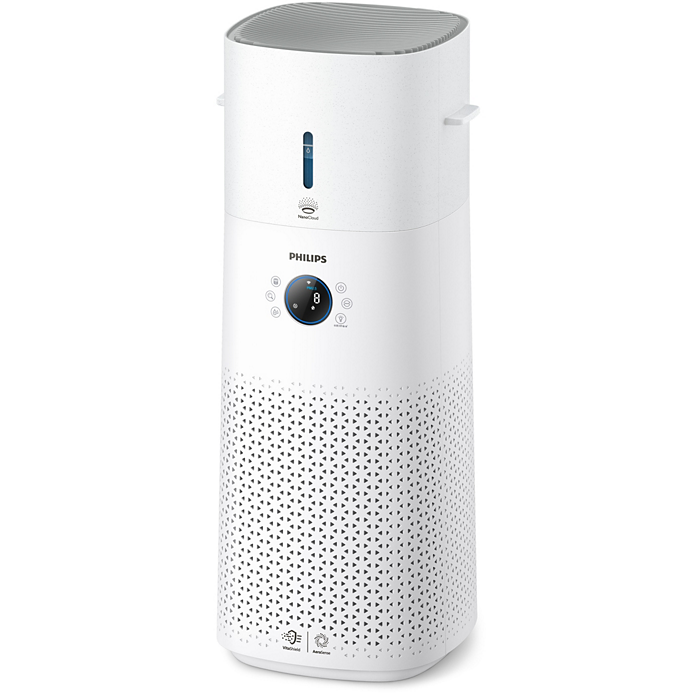Air purifiers and humidifiers serve different needs. But, what about air purifiers with built-in humidifiers?
How do they compare to standalone air purifiers? Many people seek cleaner air at home. Air purifiers filter out pollutants. Meanwhile, humidifiers add moisture to the air. Combining these features in one device sounds convenient. But is it the best choice?
Comparing these devices helps in making an informed decision. You will understand the pros and cons of each option. This blog will guide you through the differences. It will help you decide which one fits your needs better. Let’s explore the benefits and drawbacks of each type.
Air Purifiers With Humidifiers
Air purifiers with humidifiers are devices that clean the air and add moisture. They help improve indoor air quality. These devices are useful in dry climates or during winter.
How They Work
Air purifiers with humidifiers have two main functions. First, they filter out dust, pollen, and other particles. Second, they release water vapor into the air. This helps maintain a comfortable humidity level. The device pulls in air, filters it, and then adds moisture. Clean, humidified air is then released back into the room.
Key Benefits
These devices offer several benefits. They can reduce dry skin and irritation. They can also help with breathing issues. Proper humidity levels can make it easier to breathe. This is helpful for people with asthma or allergies. The air stays clean and comfortable.
Another benefit is protecting your home. Dry air can damage wooden furniture and musical instruments. Adding moisture can help preserve these items. It can also reduce static electricity. This makes your home safer and more comfortable.

Credit: www.amazon.com
Standalone Air Purifiers
Standalone air purifiers focus solely on cleaning the air. They are different from air purifiers with humidifiers, which add moisture to the air while purifying it. Standalone models are simple and effective for improving air quality.
Standalone air purifiers are essential devices for improving indoor air quality. They work by removing contaminants from the air. These devices are particularly beneficial in homes with pets, smokers, or allergy sufferers. Standalone air purifiers can significantly reduce dust, pollen, and other airborne particles.How They Operate
Standalone air purifiers use filters to clean the air. The most common type is the High-Efficiency Particulate Air (HEPA) filter. HEPA filters trap tiny particles that can cause health problems. Some purifiers also use activated carbon filters. These filters remove odors and chemicals from the air. Additionally, some models include UV light to kill bacteria and viruses.Key Advantages
Standalone air purifiers have several benefits. First, they are easy to set up and use. You only need to plug them in and turn them on. Second, they are effective at removing a wide range of pollutants. This makes them ideal for allergy sufferers and asthmatics. Third, they come in various sizes to fit different room sizes. Some models are compact and portable. This allows you to move them from room to room as needed. Lastly, standalone air purifiers can be cost-effective. Many models offer efficient operation with low energy consumption. “`Comparative Analysis
Choosing between air purifiers with humidifiers and standalone air purifiers can be confusing. This analysis helps you understand the differences. Focus on performance and cost efficiency to make an informed decision.
Performance Comparison
Air purifiers with humidifiers offer dual functionality. They clean air and add moisture. This is beneficial in dry climates. They help reduce allergens and dust. Humidified air can also be better for your skin and respiratory system.
Standalone air purifiers focus solely on cleaning the air. They use HEPA filters, activated carbon, or other technologies. These devices are efficient at removing dust, pollen, smoke, and other pollutants. They do not add moisture to the air.
| Feature | Air Purifiers with Humidifiers | Standalone Air Purifiers |
|---|---|---|
| Functionality | Purifies air and adds moisture | Only purifies air |
| Best Use | Dry climates, allergy relief | General air purification |
| Filter Types | HEPA, activated carbon, and humidification | HEPA, activated carbon |
Cost Efficiency
Cost is a major factor in choosing an air purifier. Air purifiers with humidifiers generally have a higher upfront cost. This is due to their dual functionality. They also require more maintenance. Regular cleaning and filter replacement are necessary.
Standalone air purifiers are often less expensive initially. They focus on a single function. This can lead to lower maintenance costs. Filters need to be replaced, but there are fewer components to clean.
Consider the following when evaluating cost efficiency:
- Initial purchase price
- Maintenance requirements
- Electricity consumption
- Filter replacement costs
Both types of devices have their benefits. Your choice depends on your specific needs and budget.

Credit: shop.sharpusa.com
Health Benefits
Understanding the health benefits of air purifiers with humidifiers versus standalone air purifiers is essential. Each type offers unique advantages that can significantly improve your well-being. In this section, we will explore the impact on allergies and respiratory health.
Impact On Allergies
Air purifiers with humidifiers offer a dual approach to combating allergies. They not only clean the air but also maintain optimal humidity levels. This combination helps in reducing allergy symptoms.
- Air Purifiers: Air purifiers remove allergens like pollen, dust, and pet dander.
- Humidifiers: Humidifiers add moisture to the air, preventing dryness and irritation.
Standalone air purifiers are also effective in reducing allergens. They filter out particles that trigger allergic reactions. However, they do not control humidity levels.
Respiratory Health
Maintaining respiratory health is crucial, especially during cold and flu seasons. Air purifiers with humidifiers provide a comprehensive solution.
| Feature | Air Purifiers with Humidifiers | Standalone Air Purifiers |
|---|---|---|
| Air Quality | Removes pollutants and adds moisture | Removes pollutants only |
| Humidity Control | Maintains optimal humidity | Does not control humidity |
Optimal humidity levels help keep respiratory passages moist. This reduces the risk of infections and eases breathing. Standalone air purifiers excel in removing pollutants but do not add moisture.
Maintenance And Upkeep
Maintenance and upkeep are essential aspects to consider for air purifiers with humidifiers and standalone air purifiers. Regular maintenance ensures optimal performance and extends the device’s lifespan. In this section, we will explore the ease of maintenance and the longevity and durability of both types of air purifiers.
Ease Of Maintenance
Air purifiers with humidifiers require more frequent maintenance. They have additional components like water tanks and filters. Regular cleaning of the water tank is crucial to prevent mold growth. Filters need to be replaced or cleaned regularly to maintain efficiency.
Standalone air purifiers are generally easier to maintain. They have fewer components, which means less cleaning and upkeep. Most standalone models have simple filter replacement processes. This makes them more user-friendly for busy households.
Longevity And Durability
Air purifiers with humidifiers tend to have a shorter lifespan. The added humidifier components can wear out faster. Regular maintenance can help, but it requires more attention.
Standalone air purifiers usually have a longer lifespan. Their simpler design means fewer parts that can fail. With proper care, they can last for many years.
Choosing between the two depends on your maintenance preferences. Consider how much time you can dedicate to upkeep. Both options have their benefits and drawbacks. Make an informed choice based on your needs and lifestyle.
Energy Consumption
Energy consumption is a crucial factor when choosing between air purifiers with humidifiers and standalone air purifiers. Understanding how each device impacts your energy bill can help you make an informed decision. This section will cover energy efficiency and environmental impact.
Energy Efficiency
Air purifiers with humidifiers generally consume more power. They perform two functions: cleaning the air and adding moisture. These combined tasks require more energy. Standalone air purifiers, on the other hand, typically use less power. They focus solely on purifying the air. This single-function focus makes them more energy-efficient. Comparing energy ratings can help you choose the most efficient option.
Environmental Impact
Higher energy consumption impacts the environment. Air purifiers with humidifiers can have a larger carbon footprint. They consume more electricity, which can increase greenhouse gas emissions. Standalone air purifiers are often more eco-friendly. Their lower energy use makes them a greener choice. Choosing energy-efficient models benefits both your wallet and the planet.
User Reviews And Feedback
User reviews and feedback provide valuable insights into the performance and satisfaction levels of both air purifiers with humidifiers and standalone air purifiers. These insights help potential buyers make informed decisions. This section will explore the experiences shared by customers and the opinions of experts.
Customer Experiences
Many customers appreciate air purifiers with humidifiers for their dual functionality. They mention the convenience of having clean air and added moisture. This is especially beneficial during dry seasons. Users report fewer respiratory issues and better sleep quality. On the other hand, some customers prefer standalone air purifiers. They highlight their efficiency in removing pollutants. These users often mention noticeable improvements in air quality. They also appreciate the simplicity of the device. No added maintenance for a humidifier.
Expert Opinions
Experts often recommend air purifiers with humidifiers for those with respiratory issues. They argue that added humidity can help alleviate symptoms. This makes breathing easier. Experts also note that these devices can help maintain skin hydration. On the flip side, experts also praise standalone air purifiers. They emphasize their effectiveness in removing airborne particles. Experts highlight their ability to capture allergens, smoke, and dust. They often mention the advanced filtration technology. This ensures cleaner air in the home.

Credit: www.goodhousekeeping.com
Frequently Asked Questions
What Is The Main Difference Between Air Purifiers And Humidifiers?
Air purifiers remove pollutants from the air, while humidifiers add moisture to it. Both devices improve indoor air quality but serve different purposes.
Can I Use An Air Purifier And Humidifier Together?
Yes, you can use both devices together. Combining them can enhance air quality by removing pollutants and maintaining optimal humidity levels.
Are Air Purifiers With Humidifiers Effective?
Air purifiers with humidifiers are effective. They offer dual benefits by cleaning the air and maintaining proper humidity levels. This combination is ideal for improving indoor air quality.
Do Air Purifiers With Humidifiers Require More Maintenance?
Yes, they require more maintenance. You need to regularly clean and replace filters and refill the water tank to ensure optimal performance.
Conclusion
Choosing between air purifiers with humidifiers and standalone air purifiers depends on your needs. Air purifiers with humidifiers offer added moisture, ideal for dry climates. Standalone air purifiers are perfect if you only need to clean the air. Both options improve air quality, but each has unique benefits.
Consider your environment and health needs. This helps you make an informed choice. Remember, both types can create a healthier living space. Select the one that best fits your lifestyle and enjoy cleaner, fresher air.
Rakib Sarwar is a Registered Pharmacist and a reputed health and wellness blogger. He has a great interest in Air purifiers.
